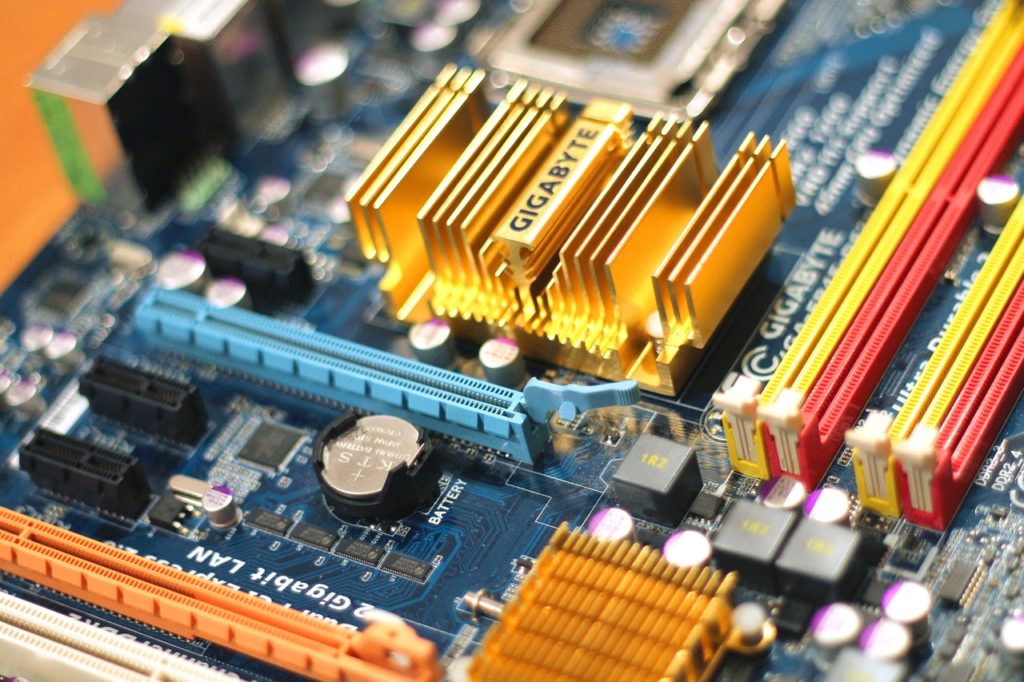Can you decide what field suits you better, mechanical vs computer engineering? We have put together this comparison to hep anyone considering either of these disciplines, enjoy!
First, if you’re looking to launch your own blog and start writing articles yourself, no matter what the subject, you can launch your blog with Bluehost for just $3.95/month.
Start creating content and launch your blog with Bluehost.
Math and science are at the center of every invention, from the tallest building in the world to the most modern video game. The development, design and creation of the most modern physical and digital products/services have come from engineering and computer science. As technology has advanced, more opportunities exist for new creations with the utilization of the fundamentals of mechanical vs computer engineering.

The people keeping these evolving fields growing are mechanical and computer engineers. These two diverse disciplines might describe different job titles/roles, each field needs its own distinct education and skills, however they both required a love for math and science.
Mechanical engineers develop new products/devices to focus on the physical structures and machines. Computer engineers are involved in many software and hardware aspects of computing, from designing individual microprocessors, micro-controllers, supercomputers and personal computers, to circuit design.
Hopeful professionals thinking about either discipline should definitely understand the differences between mechanical vs computer engineering, the potential career routes and skills that are needed.
Mechanical Engineering
Mechanical engineers are involved with the creation and manufacture engines, machines and structures. They also become knowledgeable in the related techniques and tools used to build, design and analyse these structures. Mechanical engineers’ work keeps buildings preserved and sound, water supplies clean and the public safe and healthy.
Using their problem-solving knowledge to develop, design and maintain physical devices are machines is a normal day for a mechanical engineer. They use their expertise in engineering to analyse issues, like the failure of equipment, and to find answers using mechanical products. Mechanical engineers also use computer technology and science to design and analyse sub-systems, and to test and develop their working prototypes. Those skilled in the most up-to-date software tools, such as AutoCAD, Revit, Inventor and Fusion 360, can even take out the requirement for a prototype, taking a project all the way from its concept to a final product in a shorter time frame.
A mechanical engineering bachelors degree or mechanical engineering technology bachelors degree is required for most mechanical engineer positions. Employers can also prefer to employ an engineer with a masters degree. As of May 2016, 83 per cent of mechanical engineers have bachelors degrees, in addition to this, mechanical engineers are required to have a license to sell their engineering services directly to the public.
Computer Engineering
Computer engineering is an engineering discipline that merges multiple different areas of electronic engineering and computer science that are required to create computer software and hardware. Computer engineers generally are trained in electrical engineering (or electronic engineering), hardware software integration, and software design, instead of just electronic engineering or software engineering.
As mentioned previously, they can work in many software and hardware areas of computing, from the research and creation of individual microprocessors, microcontrollers, supercomputers and personal computers, to the design of circuits. The field of computer engineering doesn’t just focus on how a computer system works, but how they are involved in the bigger picture. Computer engineers are suited for researching robotics as well, which leans heavily on the use of digital systems to monitor and control electrical systems such as communications, sensors and motors.

In many universities and colleges, students are given the option to select areas of specialized study in their junior/senior year because the entire breadth of knowledge involved in the application and design of computers is far beyond the curriculum of an undergraduate degree. Other universities might need their engineering students to undergo one or two years of general engineering before they can declare computer engineering as their primary concentration.
Mechanical vs Computer Engineering Job Outlook
Mechanical Engineering
Mechanical engineers are very diverse and can be employed in many fields, including automotive, robotics, manufacturing, alternative energy, engineering services and nanotechnology. Most often they work for civil engineering companies or private manufacturers.
The Bureau of Labor Statistics (BLS) estimates mechanical engineering jobs to increase around 4% from 2018 to 2028, about the same as all other professions (5%). Many fields represent the opportunity to grow, for example, the growing popularity of electric and hybrid cars demands mechanical engineers who can develop models that are more efficient.
Computer Engineering
The tech field is filled with opportunity and growth. Careers in information and computer science are estimated to increase 19% by 2026, and computer hardware engineering jobs are also estimated to grow 5% in the same time frame. The wage packet for computer engineers is one of the main attractions for ambitious engineers. Every occupation in Science, Technology, Engineering and Mathematics (STEM) compensate their employees more than non-STEM professions by 12% to 30% across every education level. Computer engineers can receive $114,600 per year on average.
This career path does not only have both a stable job growth and lucrative salaries, but obtaining a degree in computer engineering can create a path for several different career routes. For example you can be taught how to utilize statistical methods for large sets of data using computational methods.
Alternative growing fields that are currently hiring computer engineering professionals are the Virtual Reality (VR)/Augmented Reality (AR) and Artificial Intelligence (AI) fields. The AI market is estimated to become a $3.9 trillion market in the years to come and requires computer engineers to engineer and program the AI machine hardware.

The VR/AR field is estimated to become a $9.9 billion industry by 2022, and has experienced a 93% growth in demand for jobs in the past year. Virtual reality is not a glorified gaming system for leisure, but instead it is revolutionizing architecture, education, defense and military, and healthcare. A computer engineering degree will be a valuable asset for any professional desiring to enter into this field.
Mechanical vs Computer Engineering Responsibilities
One strategy for determining which path is right for you is to consider your career goals. For instance, are you looking for your work to be more hands-on and biased towards systems in motion and the forces and stresses associated with the systems, then mechanical engineering might be the right path for you. However, if you are looking to eventually become a software developer or architect, a degree in computer engineering will equip you for the job.
Mechanical Engineering
Some common responsibilities for a mechanical engineer include:
- Generating working prototypes for a beta testing and customer demonstration
- Performing detailed documentation to track the design process and project development
- Performing engineering calculations to support design work
- Collaborate with multidisciplinary engineering teams, and work with contractors and vendors
Computer Engineering
Some common skills a computer engineer utilises every day include:
- A knowledge of coding, designing and testing software
- The ability to build your own PC systems and repair and maintain device drivers
- A complete understanding of how computer hardware and architecture works
- Flexibility to work with a wide range of software, which can be highly specialized depending on the industry and or company
Mechanical vs Computer Engineering Education
One of the most important factors to include into your decision is the education requirements that you will need to be suitable for mechanical vs computer engineering. Working in mechanical or computer engineering involves a specialized knowledge of technical concepts/subjects. This means that you must show that you possess the qualifications for the job by undertaking some formal education in the form of a college degree.
One job post test discovered that the desired levels of education put forth by employers hiring mechanical vs computer engineering professionals. The information that was obtained revealed that 90% of employers needed mechanical engineering candidates to have bachelors degrees. Similarly 89% of engineering employers wanted to hire computer engineers that held bachelor degrees.

Evidently, education is a main requirement of obtaining employment in mechanical vs computer engineering. For the individuals that would like to become employed in the coming months, this field is basically a push. For those looking to further their skills in any area of engineering, LinkedIn Learning provides online courses that provide a certification when complete, and is free for the first 30 days!
Your Choice
When asked mechanical vs computer engineering, it is only the individual that can make the decision on which career route is right for them. The information included in this post should help you make a more informed decision in order to tune into which discipline suits you the most for your specific aspirations and abilities. Choose wisely!
Thank you very much for being here – we appreciate you taking the time to read our content. If you have anything to add, please feel free to leave a comment down below, and sign up to our newsletter for more of the same!
You can also follow us on LinkedIn, Facebook, Twitter, and Instagram so you can stay up to date.



